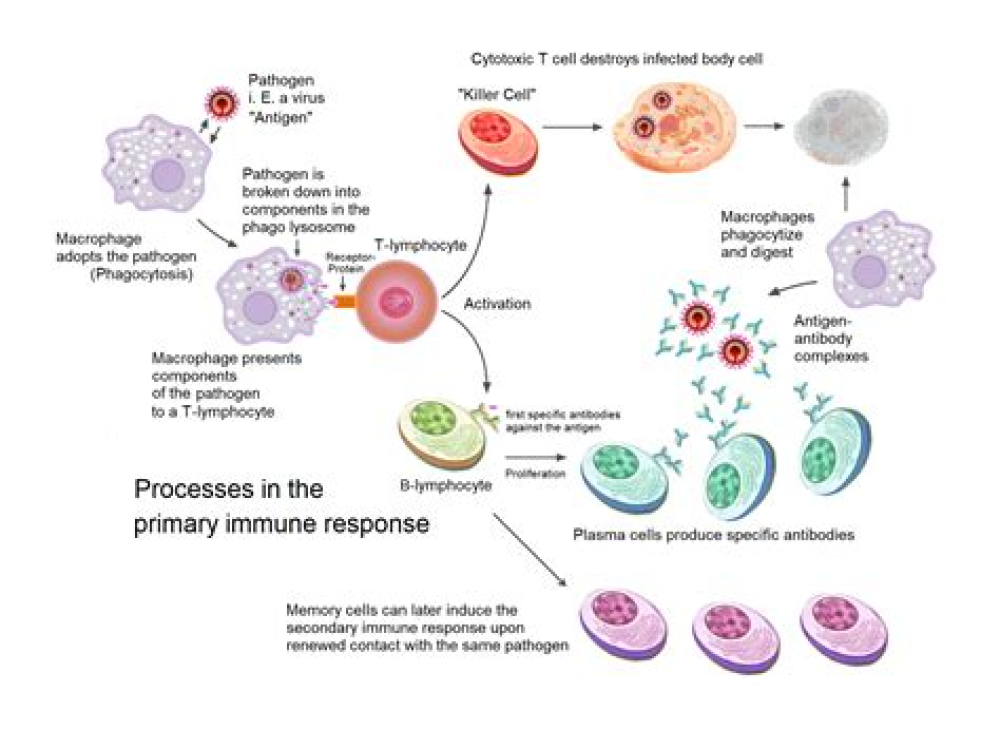Authors: References: Immunological memory to SARS-CoV-2 assessed for up to 8 months after infection. Dan JM, Mateus J, Kato Y, Hastie KM, Yu ED, Faliti CE, Grifoni A, Ramirez SI, Haupt S, Frazier A, Nakao C, Rayaprolu V, Rawlings SA, Peters B, Krammer F, Simon V, Saphire EO, Smith DM, Weiskopf D, Sette A, Crotty S. Science. 2021 Jan 6:eabf4063. doi: 10.1126/science.abf4063. Online ahead of print. PMID: 33408181.
At a Glance
- The immune systems of more than 95% of people who recovered from COVID-19 had durable memories of the virus up to eight months after infection.
- The results provide hope that people receiving SARS-CoV-2 vaccines will develop similar lasting immune memories after vaccination.
After people recover from infection with a virus, the immune system retains a memory of it. Immune cells and proteins that circulate in the body can recognize and kill the pathogen if it’s encountered again, protecting against disease and reducing illness severity.
This long-term immune protection involves several components. Antibodies—proteins that circulate in the blood—recognize foreign substances like viruses and neutralize them. Different types of T cells help recognize and kill pathogens. B cells make new antibodies when the body needs them.
All of these immune-system components have been found in people who recover from SARS-CoV-2, the virus that causes COVID-19. But the details of this immune response and how long it lasts after infection have been unclear. Scattered reports of reinfection with SARS-CoV-2 have raised concerns that the immune response to the virus might not be durable.
For More Information: https://www.nih.gov/news-events/nih-research-matters/lasting-immunity-found-after-recovery-covid-19
